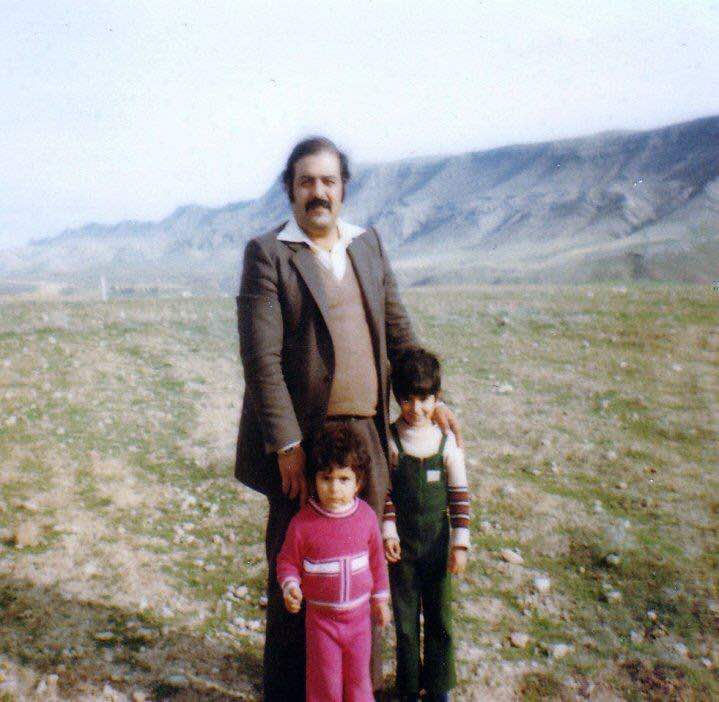5 Ways to Do Justice to Francis Shabo's Legacy
- Assyrian Policy Institute

- Jun 1, 2018
- 3 min read
Updated: Jun 26, 2018
This year marks the 25th anniversary of the assassination of Assyrian leader Francis Yousef Shabo. As Assyrians around the world look to celebrate his memory, it’s an important time to reflect on what Shabo’s legacy was, and in recognition, find ways we can honor him today.

Here are 5 ways you can honor his legacy on this day—and all year long:
Start a conversation.
Francis Shabo is an important figure in modern Assyrian history and yet many people have never heard of him. Take a few minutes to share his story with your friends. Send a text message, or share videos like these online to make sure that his story is told.

Reject division caused by sectarianism.
A member of the Chaldean Catholic Church, Francis Shabo spoke often and passionately about the unity of the Assyrian people regardless of church denomination. He actively worked against divisive strategies aimed at weakening the solidarity and political will of the Assyrians. Honor this important part of his legacy by rejecting sectarianism and instead building bridges across denominational lines.
Call your representatives about the ongoing theft of Assyrian lands.
Francis Shabo fought tirelessly for Assyrian land rights in the Kurdistan Region of Iraq. The chronic and systematic expropriation of Assyrian land in the Kurdistan Region has been a long-term problem that continues unabated in the present. There are over 130 illegal village and farmland seizures across the KRI perpetrated by ethnic Kurds and facilitated through active involvement or passive endorsement of KRG authorities. The most recent case was reported in May 2018. Official KRG documents ordering an end to Kurdish encroachments of Assyrian land date back to 1992.

The intention and scale of the process constitutes a targeted and systematic attempt to ethnically cleanse the Assyrian population from their ancestral homelands, by appropriating property to which they are legally entitled and for which they possess deeds. Assyrians seeking to overturn the occupation of their land have exhausted all available legal and political means of seeking recourse against illegal confiscations, including frequent appeals to KRG courts and other bodies. From 1991 to 2018, not a single order (the majority of which have decreed that the original Assyrian inhabitants are the rightful owners of the land being discussed in a given case), whether produced by agricultural committees, courts, by political decree, or through other administrative bodies—has been honored and enforced by KRG authorities.
Call your representatives to ask that they take a stand against the theft of Assyrian lands. Find your representatives here.
Raise awareness about the silencing of Assyrian activists.
The assassination of Francis Yousef Shabo by the Kurdistan Democratic Party a year after he was elected to the first Iraqi Kurdistan Parliament marked the start of the KRG’s campaign to silence Assyrian leaders and activists.
Today, Assyrians who speak out publicly against land theft, discrimination, injustice, prejudice, political coercion, and annexation, or who are critical of other KRG policies and practices, even on social media, are frequently threatened, attacked, or arbitrarily detained by Kurdish political police, known as the asayish.

Speak out—demand an end. Tweet organizations like Human Rights Watch, Amnesty International, and USCIRF to encourage them to investigate restrictions on freedom of speech and other human rights abuses harming Assyrians living under KRG rule.
Demand the removal of the mural honoring Shabo’s murderer.
In 2017, a massive mural was unveiled near the Assyrian town of Enishke honoring one of Francis Shabo’s murderers, known KDP hitman Wahid Koveli. Koveli was part of the assassination in 1993, but was never prosecuted for his crime. Following his death in 2016, Koveli was hailed a Kurdish hero by KRG officials. Assyrians are offended and deeply disturbed by the mural, which they feel has been intentionally placed near an Assyrian village.

Email the office of the KRG’s Representation to the United States and demand that the offensive mural be removed.




Comments